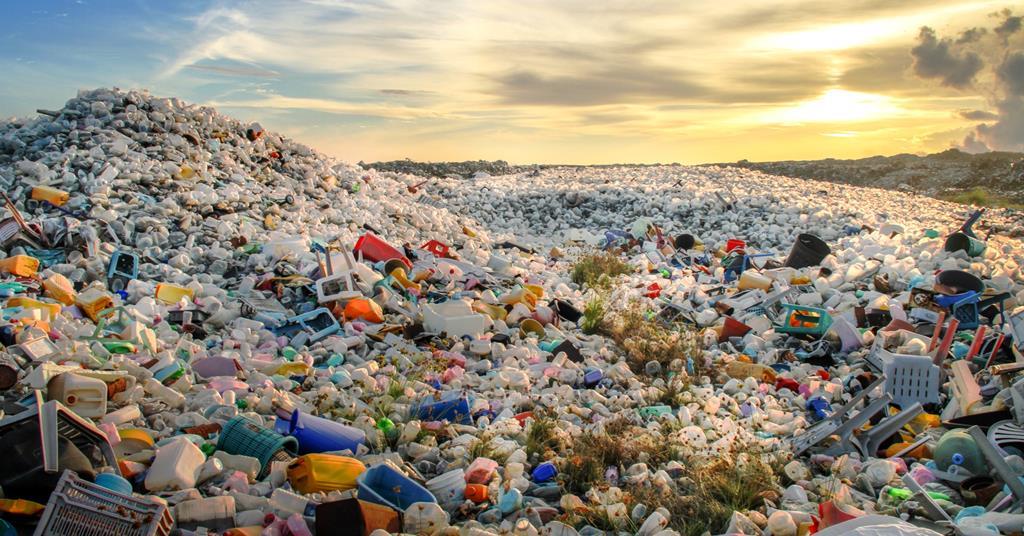Scientific breakthroughs are urgently needed to confront the soaring plastic waste. Demand for plastic is growing rapidly, raising concerns over the consequences of its waste management. This article peeks at the challenges and the opportunities proffered by the proliferation of plastic waste.
There is a genuine determination globally to reduce plastics generated by tough-to-recycle plastic waste. The real reason oil plastics have endured up to now is technological constraints to find alternatives or draining fossil plastics of their resilience in keeping their organic compounds intact. Unless oil plastics are vulnerable to the dissolution of their carbon compounds, pollution remains a major global concern.
Sea plastic pollution is growing, and the cost of cleaning up the seas is staggering. The oil plastic polluter has almost zero incentive to clean up the sea, therefore this becomes governmental burden. Most governments do not see seas polluted with oil plastics as their problem. As a result, sea oil pollution is uninterrupted on a large scale. However, a lack of economic means to arrest runaway plastic pollutants may be preying on the minds of policy and decision-makers.
Also read Turning Plastic Waste into Green Jobs: A Path to Prosperity and Sustainability.
Many may not know it, but an aeroplane’s fuselage is almost 90% oil plastic. Vehicle bodies are increasingly replacing iron and other metals in their construction. Packaging materials are overwhelmingly plastic; even construction materials have not escaped plastic’s intrusive aggressiveness.
If the technological advances still in the pipeline are anything to go with, plastic will soon replace steel in concrete construction. Plastic’s popularity in human use is due to its affordability, suitability, and availability. Oil is available and accessible, but technologies are still lagging behind in meeting the challenges of cleaning plastic waste from the environment.
Seas pollution is most affecting large sea mammals, such as whales and others that gulp plenty of water in search of food or air. As they swallow huge chunks of water, plastics find their way to their bellies, affecting not only the gastrointestinal and assimilation systems but also the respiratory systems.
It is now not uncommon to find whales dead, and researchers identify plastic ingestion contributing to the majority of those untimely fatalities. Therefore, the urgency of replacing oil plastics or finding economical ways of recycling them to less harmful utilities has gained a frenetic momentum. There is a global effort to have more powerful plants that can break down carbon compounds much quicker to cope with the ever-growing volume and weight of oil plastics. This latest technology is called “advanced” or “chemical” recycling.
So far, advanced recycling is struggling to deliver on its promise. Nevertheless, the plastics industry is hailing the new technology as a solution to an exploding global waste problem. The traditional approach to recycling is to grind up and melt plastic waste. The new, advanced recycling operators say they can further break down the plastic into more basic molecular building blocks and transform it into new plastic. By the earliest estimate, this technology may be available in the market in 2030.
In the meantime, our collective challenge is to stop using plastic that is not recyclable. Some oil plastic polluters have set a long-term plan to halve the virgin plastic resin made from petroleum. It is virgin plastic resin made from petroleum that does most of the environmental damage because it is a tough nut to crack and, hence, recycled. Such nobler goals, however, depend on advancing alternatives to petroleum resin. That, too, is easier said than done.
Also read The Hidden Risks of Bottled Water: Your Health is in Uncertainty, Beyond Control.
In that journey of rummaging for alternatives to petroleum resin, one has to acquire an optimal option that bears the attributes of the petroleum resin minus the stubbornness to break down into recycling materials. The cost of extraction and suitability have to tick all the boxes, which is a huge call on its own.
Discarded polypropylene is a material recycled daily to make disposable cups, yoghurt tubs, coffee pods, and clothing fibres. These disposable products generate a lot of waste because of the same reasons found in petroleum resin.
The traditional approach to recycling is to grind up and melt plastic waste simply. The new, advanced recycling operators say they can further break down into more basic molecular building blocks and transform them into new plastic.
However, this recycling effort, too, depends on the success of the technology deployed together with future innovation. Very little is available to support its achievement.
The application of tough recycling plastics is ubiquitous, but our technical know-how to address the challenges remains a work in progress. With a search for alternatives still stonewalling, I can say the problem of tough plastic waste will continue haunting and stalking us for the foreseeable future.
Unless we make headway in finding suitable alternatives, we are stuck in a quagmire, so to speak. We endure detestable plastic waste as a tolerable nemesis until a day of reckoning knocks on our doors, and we break this yoke of overdependence upon poorly recyclable wastes.


It is very good to reduce west in our environment